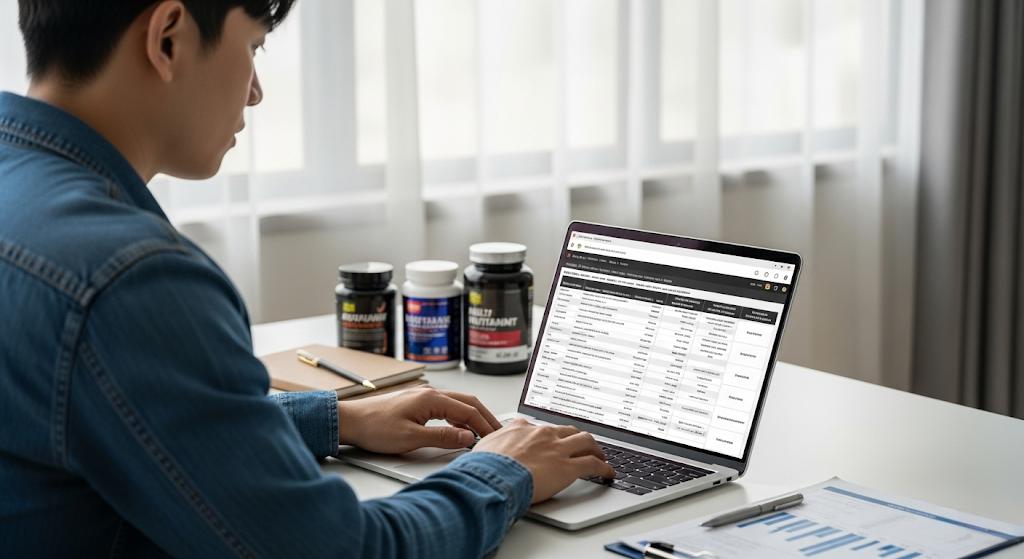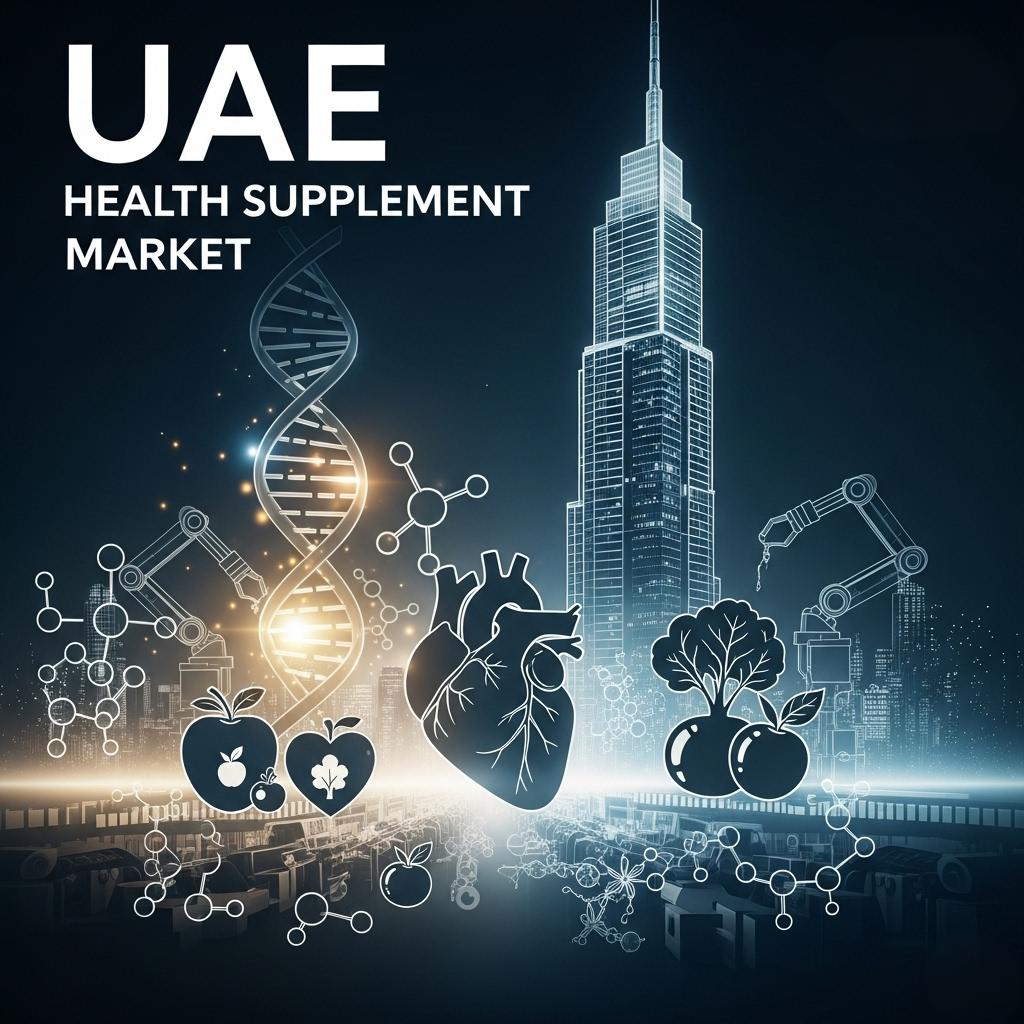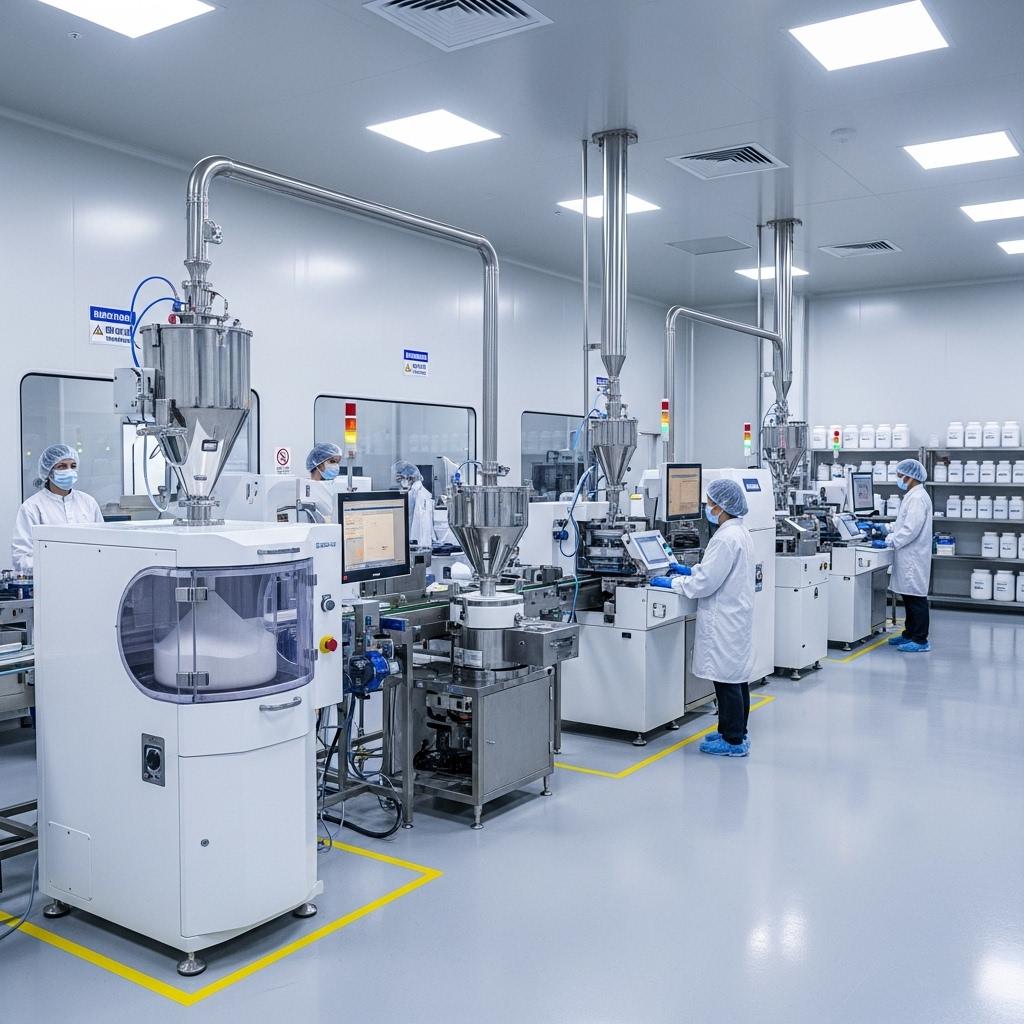Choosing the right supplement manufacturer is not just about finding a factory — it’s about selecting a long-term partner who understands your vision, meets strict quality standards, and can help your product succeed in a competitive market. Below is a comprehensive guide withdetailed explanationsfor each critical step in the process:

1. Define Your Product Concept in Detail
Before you reach out to any manufacturer, you need a clearly defined product vision. This means answering:
-
-
Whatformwill your supplement take? (capsules, tablets, softgels, powders, liquids, gummies)
-
Whathealth functionwill it serve? (immunity, sleep, weight loss, brain health, etc.)
-
Are there anyspecific ingredientsor claims involved? (e.g., “with Ashwagandha,” or “clinically dosed Omega-3”)
-
What are yourlabeling or regulatory requirements? (vegan, Halal, Non-GMO, Organic, FDA-compliant)
-
Being specific here will help you find a manufacturer with theright specialization and certificationfor your niche.
2. Identify Your Minimum Requirements
Supplement manufacturing isn’t one-size-fits-all. You should clearly define:
-
-
MOQ (Minimum Order Quantity):Some factories only work with high-volume clients.
-
Budget range per unit:Including raw materials, packaging, labor, testing, and logistics.
-
Lead time:How soon do you need the finished product?
-
Location preferences:Do you want local production (e.g., USA/EU) or overseas (e.g., China/India)?
-
Also consider whether you’ll needturnkey (ODM)services (including formula development), or if you already have your own formula and just needOEMproduction.
3. Research Potential Manufacturers Thoroughly
Don’t just Google "supplement manufacturer." Use a variety ofB2B sourcing channels, including:
-
-
B2B directories: Thomasnet, Kompass, GlobalSources, Made-in-China
-
Trade shows: SupplySide West (USA), Vitafoods Europe (EU), CPhI Worldwide
-
Industry referrals: LinkedIn, Reddit’s /r/supplements, trade associations
-
Look for:
-
-
Certifications: GMP (Good Manufacturing Practice), FDA-registered, ISO 22000, NSF, Halal/Kosher
-
Experience: Do they specialize in your category (e.g. sports nutrition, herbal, beauty-from-within)?
-
Services offered: Do they handle packaging, labeling, fulfillment, R&D?
-
A good manufacturer should have apublic portfolio, and ideally betransparentabout their capabilities and limitations.
4. Evaluate Samples and Testing Capabilities
Once you’ve narrowed your list, requestproduct samples and COAs (Certificates of Analysis). This helps you assess:
-
-
Taste, texture, solubility, and appearance(especially important for gummies and powders)
-
Stability and shelf lifeunder different conditions
-
Third-party lab testing: Does the product meet its label claims and pass safety tests (heavy metals, microbes, etc.)?
-
Some manufacturers also offerpilot runsbefore mass production — this is a valuable option for first-time founders.
5. Audit the Manufacturer’s Quality Systems
Quality assurance isn’t just about one test — it’s an end-to-end system. Ask your potential manufacturer:
-
-
Do you conductraw material testing, in-process inspections, and final batch testing?
-
AreSOPs (Standard Operating Procedures)in place and documented?
-
Can Iaudit your facility(physically or virtually)?
-
Do you retainlot-level traceabilityfor recalls or issues?
-
A trustworthy manufacturer should be comfortable sharingQC protocolsand even offer mock regulatory inspection reports if requested.
6. Clarify Terms and Sign a Formal Agreement
Never proceed without a signedManufacturing Agreement (MA)orNon-Disclosure Agreement (NDA). These should include:
-
-
Product specifications and quality standards
-
IP ownership (especially if you share a custom formula)
-
Payment terms and refund clauses
-
Production timelines and penalties for delay
-
Confidentiality clauses
-
Don’t rely on email chains or verbal agreements — a formal, enforceable contract is essential for protecting both sides.
7. Consider Their Support Beyond Manufacturing
A truly capable partner will offer more than production:
-
-
Label design and compliance checks(especially for U.S. FDA, EU EFSA, Middle East SFDA)
-
Custom packaging sourcing(bottles, pouches, blister packs)
-
Supply chain coordination(import/export documents, drop shipping, warehousing)
-
R&D for future products(e.g. adding functional ingredients like NMN or postbiotics)
-
This is especially valuable if you’re astartup brandlooking to scale quickly with minimal internal resources.
8. Start Small, but Think Big
Even if you begin with a small order, evaluate your manufacturer’s:
-
-
Scalability:Can they produce 10x your volume in the future?
-
Adaptability:Can they switch formulations based on market trends?
-
Communication:Are they proactive and responsive? Miscommunication kills timelines.
-
The best manufacturersgrow with you, offering flexibility as your business evolves.
✅Pro Tip: Don’t Just Look for the Cheapest – Look for the Most Capable
Low-cost production may sacrifice quality, speed, or compliance. Instead, focus on finding astrategic partnerwho offers the right balance between price, reliability, and product expertise.
⚙️ZoomsHeal: Your Trusted OEM/ODM Partner
AtZoomsHeal, we help global brands build supplement businesses from concept to shelf. With full GMP、FDA certification, low MOQs, and in-house R&D, we offer white-label and custom solutions for capsules, gummies, powders, and more. Visithttps://zoomsheal.comto explore how we can help you scale your health brand — reliably and fast.
✅FAQ Section: How to Find a Supplement Manufacturer
1. What is a supplement manufacturer?
A supplement manufacturer is a company that produces dietary or health supplements, often under a brand’s private label. They may offer contract manufacturing, formulation development, and packaging services.
2. What’s the difference between OEM and ODM in supplements?
OEM means the manufacturer produces your custom formula based on your instructions. ODM means the manufacturer offers a ready-made formula that you can brand as your own.
3. How much does it cost to manufacture supplements?
Costs vary based on the supplement form (e.g., capsule, gummy, powder), ingredients, quantity, and packaging. Startups typically need to prepare a few thousand dollars for initial MOQ.
4. What certifications should a good supplement manufacturer have?
Look for certifications like GMP (Good Manufacturing Practices), ISO, FDA registration (for U.S. markets), and sometimes Halal/Kosher if your market demands it.
5. Can small brands work with supplement manufacturers?
Yes. Many manufacturers offer low MOQs or startup support, especially those specializing in private label or small-batch production.
6. What countries are popular for supplement manufacturing?
The U.S., Canada, Germany, Australia, and China are leading hubs. Southeast Asia and India are also rising due to cost advantages.
7. How long does it take from contract to delivery?
Lead times range from 4 to 12 weeks depending on formulation, compliance testing, and packaging. Custom formulas may take longer.
8. What are the common mistakes to avoid when choosing a manufacturer?
Not checking certifications, ignoring MOQs, skipping sample testing, or not clarifying IP rights can lead to costly issues later.







